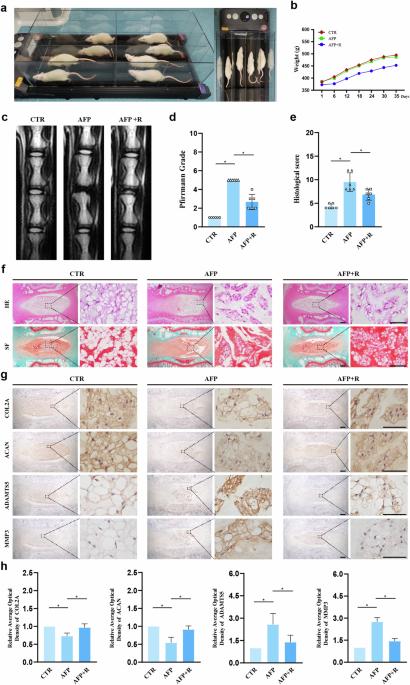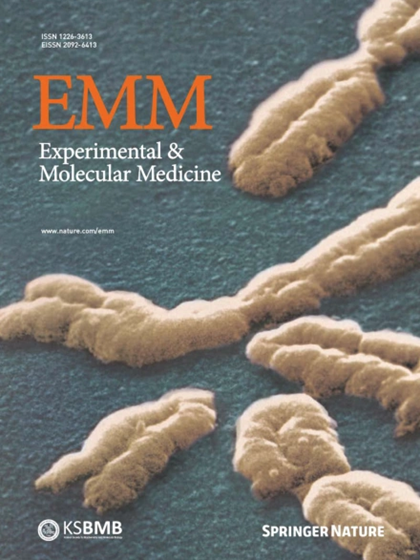The muscle–intervertebral disc interaction mediated by L-BAIBA modulates extracellular matrix homeostasis and PANoptosis in nucleus pulposus cells
IF 9.5
2区 医学
Q1 BIOCHEMISTRY & MOLECULAR BIOLOGY
引用次数: 0
Abstract
Upon engaging in physical activity, skeletal muscle synthesizes myokines, which not only facilitate crosstalk with various organs, including the brain, adipose tissue, bone, liver, gut, pancreas, and skin but also promote intramuscular signaling. Crosstalk is vital for maintaining various physiological processes. However, the specific interactions between skeletal muscle and intervertebral discs remain largely unexplored. β-Aminoisobutyric acid (BAIBA), an exercise-induced myokine and a metabolite of branched-chain amino acids in skeletal muscle, has emerged as a key player in this context. Our study demonstrated that exercise significantly elevates BAIBA levels in skeletal muscle, plasma, and nucleus pulposus (NP) tissues. Moreover, exercise enhances extracellular matrix (ECM) synthesis in NP tissues and upregulates L-BAIBA synthase in skeletal muscle. Both in vivo and in vitro evidence revealed that L-BAIBA impedes PANoptosis and ECM degradation in NP cells by activating the AMPK/NF-κB signaling pathway. These findings suggest that exercise, coupled with the resulting increase in L-BAIBA, may serve as an effective intervention to decelerate the progression of intervertebral disc degeneration (IDD). Consequently, L-BAIBA, which originates from skeletal muscle, is a promising new therapeutic approach for IDD. Intervertebral disc degeneration affects many people globally. Researchers investigated how exercise and a muscle-produced molecule, L-BAIBA, can slow IDD. They used human tissue samples, cell cultures, and rat models to study how exercise affects IDD and how L-BAIBA protects disc cells. The study combined lab and animal research, using human disc tissues and rats to understand disc degeneration and exercise effects. They found exercise increases L-BAIBA production, which benefits disc cells by promoting essential disc components and reducing cell death, a degeneration contributor. This could lead to non-invasive IDD treatments using the body’s exercise responses. The results showed exercise and L-BAIBA improved disc health by increasing essential disc components and reducing cell death. They suggest L-BAIBA could be a new IDD treatment, using exercise benefits at a molecular level. This summary was initially drafted using artificial intelligence, then revised and fact-checked by the author.

由L-BAIBA介导的肌肉与椎间盘之间的相互作用可调节细胞外基质平衡和髓核细胞的PAN凋亡。
在进行体力活动时,骨骼肌会合成肌动素,这些肌动素不仅能促进与大脑、脂肪组织、骨骼、肝脏、肠道、胰腺和皮肤等各种器官的串联,还能促进肌肉内的信号传递。串联对于维持各种生理过程至关重要。然而,骨骼肌与椎间盘之间的具体相互作用在很大程度上仍未得到探索。β-氨基异丁酸(BAIBA)是一种运动诱导肌动素,也是骨骼肌中支链氨基酸的代谢产物,已成为这方面的一个关键角色。我们的研究表明,运动能显著提高骨骼肌、血浆和髓核组织中的 BAIBA 水平。此外,运动还能促进 NP 组织细胞外基质(ECM)的合成,并上调骨骼肌中的 L-BAIBA 合成酶。体内和体外证据显示,L-BAIBA 通过激活 AMPK/NF-κB 信号通路,阻碍了 NP 细胞的 PAN 凋亡和 ECM 降解。这些研究结果表明,运动以及由此导致的 L-BAIBA 的增加可作为一种有效的干预措施,以减缓椎间盘退变(IDD)的进展。因此,来源于骨骼肌的L-BAIBA是一种治疗IDD的前景广阔的新方法。
本文章由计算机程序翻译,如有差异,请以英文原文为准。
求助全文
约1分钟内获得全文
求助全文
来源期刊

Experimental and Molecular Medicine
医学-生化与分子生物学
CiteScore
19.50
自引率
0.80%
发文量
166
审稿时长
3 months
期刊介绍:
Experimental & Molecular Medicine (EMM) stands as Korea's pioneering biochemistry journal, established in 1964 and rejuvenated in 1996 as an Open Access, fully peer-reviewed international journal. Dedicated to advancing translational research and showcasing recent breakthroughs in the biomedical realm, EMM invites submissions encompassing genetic, molecular, and cellular studies of human physiology and diseases. Emphasizing the correlation between experimental and translational research and enhanced clinical benefits, the journal actively encourages contributions employing specific molecular tools. Welcoming studies that bridge basic discoveries with clinical relevance, alongside articles demonstrating clear in vivo significance and novelty, Experimental & Molecular Medicine proudly serves as an open-access, online-only repository of cutting-edge medical research.
 求助内容:
求助内容: 应助结果提醒方式:
应助结果提醒方式:


